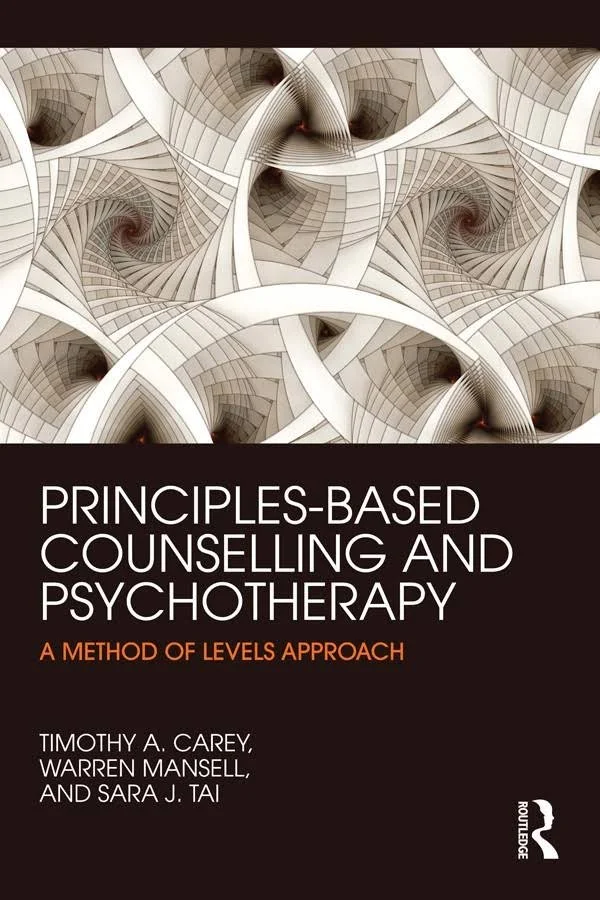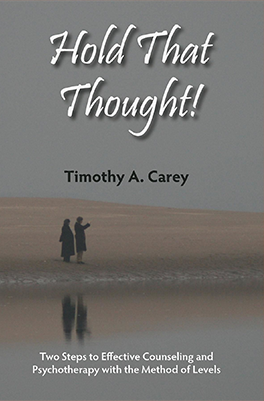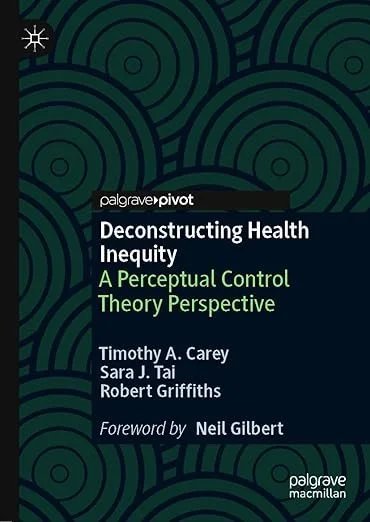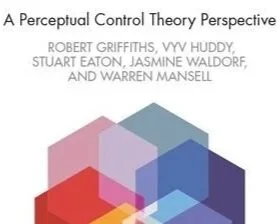
Hieronder vind je twee boekenplanken; eentje over de Method of Levels en de andere over de Perceptual Control Theory
Boekenplank Method of Levels
-

Principles-Based Counselling and Psychotherapy; A Method of Levels approach
Geschreven door T. A. Carey, W. Mansell and S.J. Tai in 2015
Many current approaches to the treatment of psychological problems focus on specific disorders and techniques that are purported to be effective and distinct. Recent advances in knowledge and theory, however, have called into question this approach. The conceptual framework of transdiagnostic, rather than disorder specific, processes is gaining traction. Alongside this has been the call to focus on evidence-based principles rather than evidence-based practices and techniques. The rationale behind this is that many apparently unique and innovative practices are usually the reflection of common underlying principles. This book describes three foundational principles that are key to understanding both the rise and the resolution of psychological distress.
-

The Method of Levels; How to do psychotherapy without getting in the way
Geschreven door T. A. Carey
Based on Perceptual Control Theory, PCT (explained in the foreword), this therapeutic method, called The Method of Levels (MOL) leaves the patient in control with no interference from the therapist. Using MOL this book explains how you can ask very simple questions about background thoughts to assist people in distress. Without offering advice or commentary of any kind, you can help others review things that are troubling them and go “up a level” to discover solutions.
-

Hold that thought!
Geschreven door T. A. Carey
This book describes the Method of Levels (MOL) therapy from the stance that people with psychological problems get themselves better. MOL is an approach to psychotherapy based on a comprehensive scientific model of the behavior of living organisms. The lighthearted style of the book does not obscure the central message: that people can change only themselves, and do not need prescriptive solutions from psychotherapists. With lots of examples and the humorous illustrations of North Carolina artist Josh Taylor, Hold that Thought! shows readers how to find a new perspective on their conflict and ultimately resolve it.
-

A Transdiagnostic Approach to CBT using Method of Levels Therapy
Geschreven door W. Mansell, T. A. Carey and S. J. Tai
Cognitive Behavioural Therapy (CBT) is the treatment of choice for most mental health problems. Each different problem is usually treated by a different model of CBT. Yet evidence tells us that the same processes are responsible for long term distress in us all. This handy manual draws on evidence and theory to provide the key principles to aid change and recovery.
The transdiagnostic approach is supported by a wealth of evidence that processes such as worry, emotion suppression, self-criticism and avoidance maintain distress across psychological disorders. Perceptual Control Theory (PCT) explains all of these processes as forms of ‘inflexible control’, and Method of Levels Therapy (MOL) helps people to let go of these habits. The principles and techniques of MOL are clearly and practically described for clinicians to offer a transdiagnostic CBT that is tailor-made to the goals of each client.
-

Deconstructing Health Inequity; A Perceptual Control Theory Perspective
Geschreven door T. A. Carey, S. J. Tai, R. Griffiths
This book offers a radically different perspective on the topic of health inequity. Carey, Tai, and Griffiths use Perceptual Control Theory (PCT) to deconstruct current approaches to understanding, investigating, and addressing problems of health inequity. In the book, the authors propose that health inequity is not a problem per se. Disrupted control, they argue, is the problem that needs to be addressed.
From this perspective, research, policy, and health practices directed at addressing health inequity in isolation will offer only partial solutions to the problems created by disrupted control. Addressing problems of disrupted control directly, however, has the potential to entirely resolve issues that are created by health inequity.
-

Patient-Perspective Care; A New Paradigm for Health Systems and Services
Geschreven door T. A. Carey
Inappropriate health care is an escalating and expensive problem. It affects high income, middle income, and low income countries and wastes billions of dollars annually as well as harming individuals and communities. Inappropriate care refers to both the overuse and underuse of tests and treatments and, ironically, can occur concurrently within the same health system. Even though patient-centred care is still the prevailing ethos, specifying where patients should be situated geographically has not required health professionals to consider the preferences, values, and priorities of patients when making treatment decisions.
Patient-perspective care demands that the decisions health professionals make are in the service of patient’s goals. Health care, ultimately, is helping individuals to live the lives they would wish for themselves. In order to meet this imperative, health professionals must work towards understanding what their patients would like to achieve through their engagement with health services. This book details the extent and scope of inappropriate care and how we have arrived in this position. The necessity for patient-perspective care is outlined and provides a theoretical framework that explains why patient-perspective care is so critical. The implications of this theory are then explored and specific strategies for moving towards a patient-perspective approach are discussed.
Boekenplank Perceptual Control Theory
-

Behavior: The Control of Perception
Geschreven door W. T. Powers
Proposes a new model of behavior based on the theory that one's perceptions are all that can be known, and that the purpose of all actions is to control the state of this perceived world. A hierarchical structure of neurological control systems is suggested in which each control system specifies the behavior of lower level systems and thus controls its own perceptions. Conflicts of this model with behaviorism and psychoanalysis are examined. -

The Interdisciplinary Handbook of Perceptual Control Theory
Edited by W. Mansell
The Interdisciplinary Handbook of Perceptual Control Theory brings together the latest research, theory, and applications from W. T. Powers’ Perceptual Control Theory (PCT) that proposes that the behavior of a living organism lies in the control of perceived aspects of both itself and its environment. Sections cover theory, the application of PCT to a broad range of disciplines, why perceptual control is fundamental to understanding human nature, a new way to do research on brain processes and behavior, how the role of natural selection in behavior can be demystified, how engineers can emulate human purposeful behavior in robots, and much more. Each chapter includes an author biography to set the context of their work within the development of PCT.
-

Perceptual Control Theory Perspective
Geschreven door R. Griffiths, V. Huddy, S. Eaton, J. Waldorf and W. Mansell
This book considers how principles derived from a theory of human behaviour – Perceptual Control Theory – can be configured to create mental health services that are more effective, efficient, and humane.
Authored by clinicians, academics, and experts-by-experience, the text explores the way Perceptual Control Theory (PCT) principles can be applied within the secondary mental healthcare system – from the overall commissioning and design of services to the practice of individual clinicians. A range of topics relevant to the delivery of secondary mental healthcare are covered, including community and inpatient working, the delivery of individual psychological therapy, the use of restrictive practices, and working with relatives and carers. The book concludes by describing PCT’s unique contribution to the field of mental healthcare.
The book, one of the first of its kind, will be of interest to students and practitioners from a range of health and social care backgrounds, as well as service managers, commissioners, academics, and policy makers.
-

Alles Onder Controle
Geschreven door E. de Hullu
Control is much more than managing your environment or controlling yourself: it’s the invisible force behind all our behavior. Yet psychology pays surprisingly little attention to it. Understanding the mechanism of control enables us to comprehend much more – about ourselves, about others, and about the world around us.